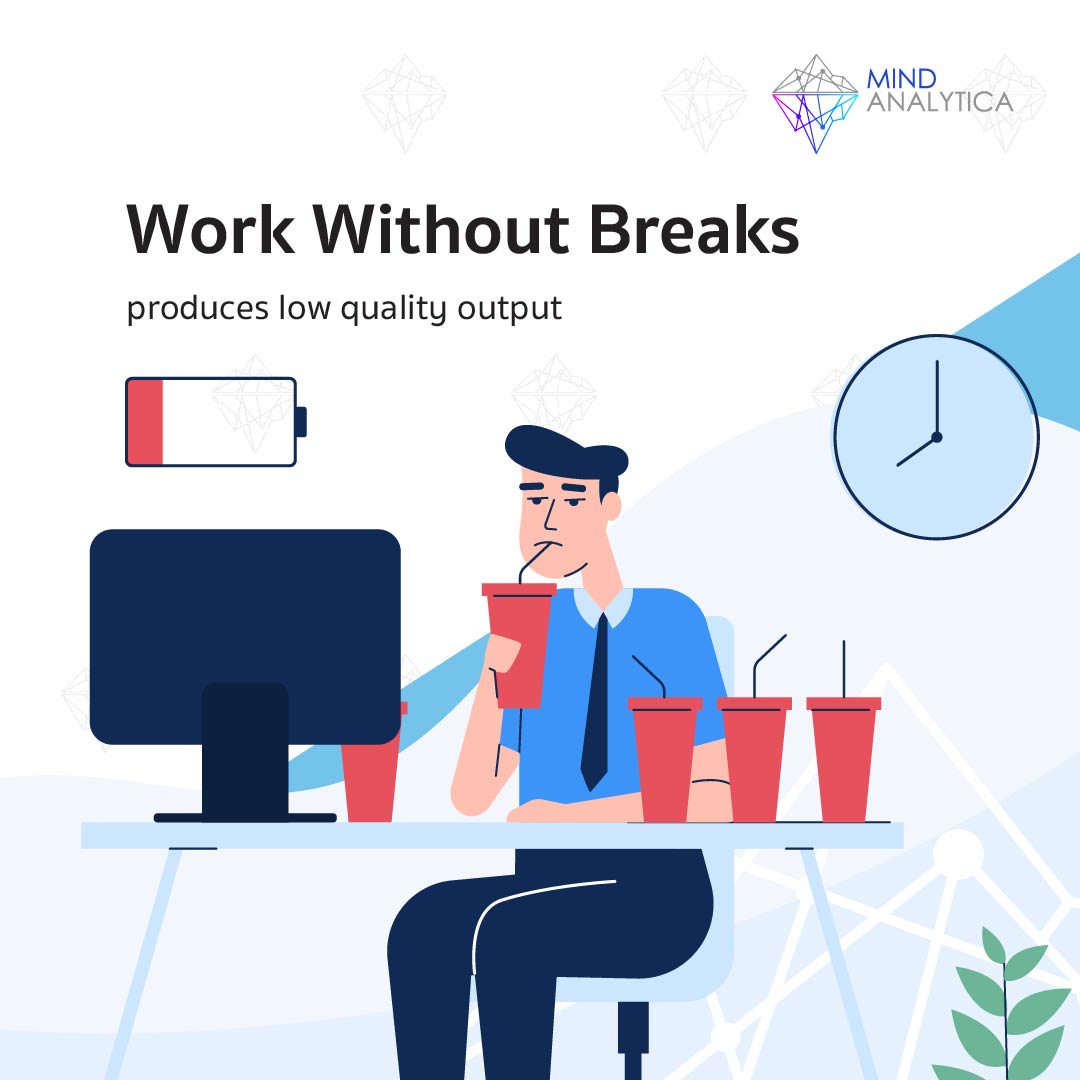Work Without Breaks
28 สิงหาคม 2566 - เวลาอ่าน 2 นาที
Produces low quality output
In general, when employees in a company choose not to take breaks during work, it often leads to the accumulation of fatigue, which eventually affects their mood and results in poorer job performance. However, some individuals choose not to take breaks without any specific reason. This article presents ways to decide whether an employee should take breaks or not.
Researchers in human resource management, Phan and Beck, conducted a study on the decision to take breaks during work, published in the year 2023. Their quantitative research method involved surveying individuals, and they found that the volume of work is a primary factor influencing the decision to take breaks among two different employees.
For one employee, perceiving a high workload leading to exhaustion affects their mood and job performance negatively. This leads them to decide to take breaks by physically stepping away from work.
On the other hand, another employee, anticipating an uncompleted workload, decides not to take breaks. This decision is based on their understanding that taking a break might hinder them from finishing their tasks on time.
This difference prompted individual interviews with both groups. Employees from the first group reported that they decide to take breaks due to work-related fatigue, stress, negative emotions arising from work, and noticing a decline in job performance. They also mentioned observing physical changes, such as tired eyes or dizziness, which indicates a need for rest.
The second group of employees who chose not to take breaks explained that their decision comes from perceiving their workload and anticipating that they might not finish in time. They reasoned that this anticipation drives them to prioritize completing their tasks in a single stretch, even if it means enduring considerable fatigue. However, they acknowledged the possibility of compromised future job performance as a trade-off for not resting while they are still fresh.
In conclusion, for organizational leaders and human resource managers seeking to leverage employees' break-taking behavior for maximum benefit, it's advisable to support short breaks when the workload is manageable. This helps maintain a balance between moderate fatigue and job performance that remains above the acceptable threshold. Additionally, it's important to reduce unnecessary tasks that contribute to excessive workload, which can lead employees to face an overwhelming amount of work.



